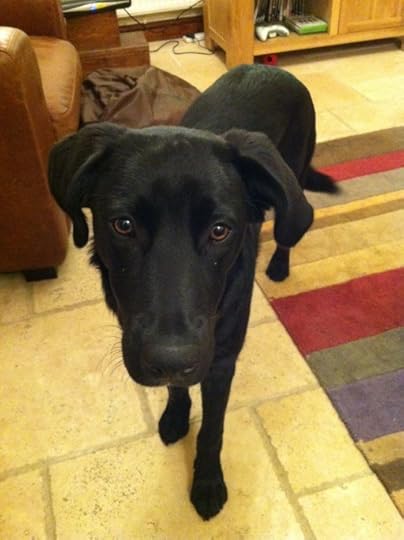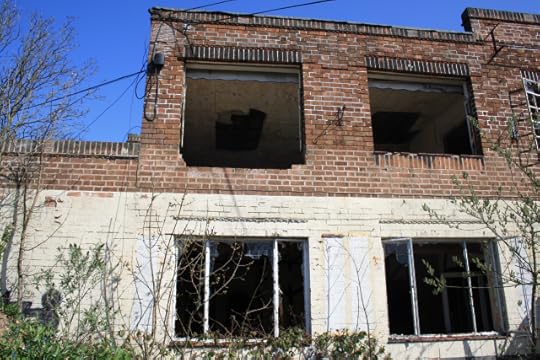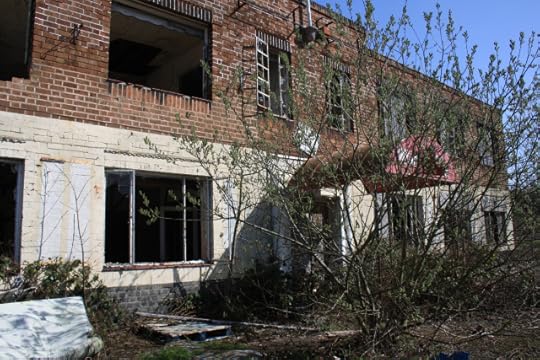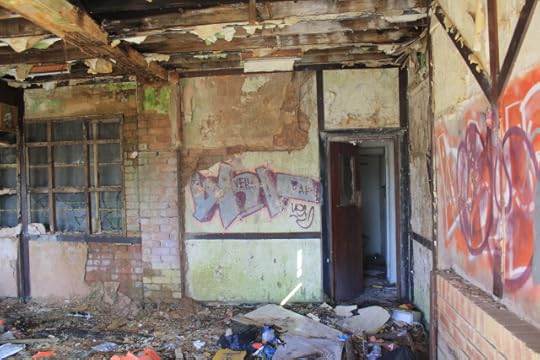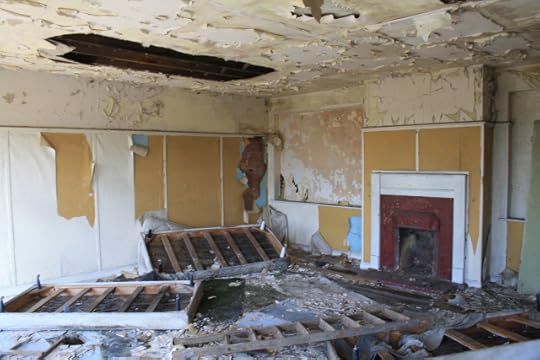T.S. Sharp's Blog, page 6
June 22, 2012
Creative Writing Course – Week #25
This week’s class was the last week of the writing course – forever! 
That meant handing in our third chapters for marking, along with a synopsis for the novels we’d been working on over the last three terms. Luckily for me, we’re not being marked on the synopsis, it’s just to accompany the chapters we’ve submitted. There are a thousand different ways to write the plot synopsis for a novel, and it’s even harder if you haven’t finished it and are not too sure how it ends anyway. Reading my synopsis back, it almost read like ‘…and he woke up and it was all a dream’ at the end, such was my haste to wrap it up. Not to worry, the events in the synopsis won’t survive the actual writing of the novel I suspect.
As for the lesson itself, it was mostly spent hearing passages read from everyone’s third chapters. This was really interesting as it showed how much progress had been made since the beginning of the first term. I opted for a passage that introduces one of my main characters, his first appearance in the novel. I’ve added it below. Here we meet Jimmy Cleavis, the flashy drug dealer who operates a network of dealers that peddle the heroin that his Kurdish paymasters bring into the country…
~
Jimmy Cleavis drained the last of the Chrystal champagne from his glass, then clicked his fingers at the waiter to bring another bottle. He didn’t even like champagne that much. He just liked to be seen drinking it. The waiter gave a discrete nod and stepped out of the private dining suite at the rear of the Belgravia House Hotel.
Across the table from him sat his long-term business partner, Leon, and Leon’s wife Marcia. Next to Cleavis was Lauren, his girlfriend of the past ten years. Together they occupied the only table in a room that had to be booked the best part of six months in advance. Like always, Cleavis picked up the tab. He often joked that he was probably the only guest to pay the bill in cash. The expensive restaurant and indiscreet displays of conspicuous wealth were all part of Cleavis’ carefully stage-managed persona. His bad table manners and handfuls of bank notes were his personal ‘fuck you’ to refined and respectable establishments such as this. Ultimately, money brought him anything he wanted.
“I was telling your husband, Marcia, about how he’ll be holding the fort while I fuck off to the Maldives with Lauren for two weeks,” Cleavis said, pointing a silver fork at Leon.
Marcia giggled and placed a hand on Leon’s arm. He smiled and shrugged.
“Well, someone’s got to make sure things get done properly. Can’t trust paperwork to illiterate twats like Jimmy, can we?” Leon retorted. A ripple of laughter swept round the room.
The door opened and the waiter reappeared, but without the champagne Cleavis had ordered. “Mr Cleavis, there’s some gentlemen to see you.”
“What? This is a private dining room. I don’t take fucking visitors when I’m eating. Tell them I’m busy.”
“The gentlemen are very persistent -”
“I don’t give a fuck what they are. Tell them to fuck off.”
The waiter shuffled his feet, clearly uncomfortable with the situation. “Perhaps you’d like to speak to them in the hallway, sir.”
“No. I’m not going to them, bring them in here,” Cleavis demanded, throwing down his white cotton napkin.
The waiter stepped outside, pulling the door to behind him. The rest of the table looked on in silence, intrigued by the unannounced visitors. Lauren glanced across at Cleavis. His face was a screwed up ball of rage, a sight she’d seen all too often and didn’t want to experience it over dinner at an expensive restaurant.
The door opened and the waiter was barged aside by two heavy-set men. Standing side-by-side in the doorway they filled the space. Neither of them were dressed for dinner at this restaurant. One wore tracksuit bottoms and a polo shirt, the other faded jeans and a shirt with buttons that were straining to contain his girth. Cleavis knew who they were. It was Ozi and Mamir. And he knew who had sent them. He just didn’t know why.
“Baba wants to see you. Now.” Ozi said. He spoke directly to Cleavis, as if the others weren’t present.
“Can it wait? I’m almost finished here,” Cleavis’ indignation about being disturbed had vanished, evaporating the moment he saw the two Kurds walk into the room.
“No,” Mamir replied. He stepped aside to show Cleavis the doorway.
Cleavis wiped his mouth with his napkin, gave an apologetic glance to his dinner guests and stood. He touched Lauren’s shoulder as he walked away from the table, then paused to hand the waiter a wad of bank notes. Then he was gone, walking down the corridor flanked by Ozi and Mamir.
~
And then we all went to the pub, where most of us made excuses as to why we hadn’t done more writing over the last six months. Now that the course is finished, I’ll be able to spend Wednesday nights with this dude, who always almost knocks me over when I get back late from the class each week:
June 14, 2012
Creative Writing Course – Week 24
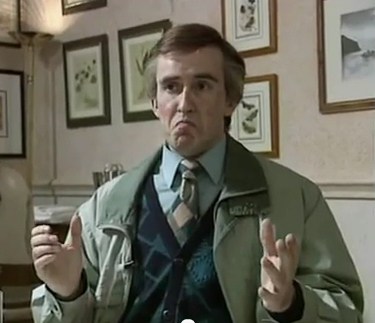 Last week’s blog was late, and this one is right on time, so they come thick and fast this week for a change.
Last week’s blog was late, and this one is right on time, so they come thick and fast this week for a change.
Week 24 of my writing course is the penultimate class. Next week we hand in our third chapters of our novels for grading. Then we have to go it alone. Some people have finished their novels, others, like me, have only got the first three chapters. I intend to continue working on mine, but I fear that after focussing on the first three chapters with appraisal and editing from the tutors, the rest of the novel might well be junk. Nevertheless, I’ve leant a lot from the course and hopefully I can use some of the skills in the execution of the full novel.
As for this week’s class, it was mostly spent talking individually about how we feel about our third chapters. I’m reasonably happy with mine, although I feel the length is a little on the long side, so I’ll have to trim it down a little and decide whether or not to include another scene that has been bugging me to be included. On hearing other people talk about their chapter threes, I realised I wasn’t the only one with this problem. Some of the issued raised by the group were;
Formatting
Chapter length
Synopsis
There are no real hard and fast answers to these questions, so it’s not worth debating them here, but they’re all things that any writer encounters at some point or another.
The rest of the time was spent talking about the publishing process and industry in general, which turned into a kind of Q&A with the tutor. Subjects about the role of editors, re-writes, royalties, and traditional publishing versus ebook self-publishing made for interesting discussion, all of which are being debated all over the net, so I won’t cover that ground here.
Like I mentioned in the last blog post, once the course has concluded next week I’ll need to find new material to write about. I’ll try and keep it writing-related, but any suggestions would be welcome.
Twitter v Facebook?
When will vampire novels finally become passé?
Money tennis?








June 12, 2012
Creative Writing Course – Week 23
 There wasn’t a class last week, due to the Queen’s Jubilee and most people being off for the week, so this week’s blog post is from the previous week. We’re almost at the end of the course now, next week will be the submission day for our third and final chapters. The first three chapters of our novels have been lovingly crafted and edited by us and appraised by the tutors, so all the chapters that follow after the course has finished will no doubt be unspeakable rubbish. Or maybe that’s just me…
There wasn’t a class last week, due to the Queen’s Jubilee and most people being off for the week, so this week’s blog post is from the previous week. We’re almost at the end of the course now, next week will be the submission day for our third and final chapters. The first three chapters of our novels have been lovingly crafted and edited by us and appraised by the tutors, so all the chapters that follow after the course has finished will no doubt be unspeakable rubbish. Or maybe that’s just me…
Here’s what I remember about the previous week’s class from my sketchy notes;
We went around the class talking about ways in which our plots could develop and ways in which we could tighten up our work. This kind of thing is really useful – bouncing ideas back and forth with someone who’s read your work but is unconnected to it is a great way of finding flaws and/or developing new subplots.
In more general terms, we looked at what our characters’ ‘wants’ and ‘needs’ are to find out their motivations, so that we better understand how to write for them.
What are their fears?
What are their secrets?
We were urged to create narrative bridges to link chapters to each other so that they lead a reader through the story. This sounds obvious but I think it’s something that needs to done carefully to avoid a disjointed feeling when reading your work.
On a similar note contrasts in style and settings can also make for distinctive writing. This is especially useful if you have characters or locations that are markedly different from each other. I’ll be trying to employ this tactic when switching between two of my main characters. In this particular crime novel I have a drug lord who keeps a low profile and is discreet with his business and wealth, and a street dealer who is brash and loud about his illicit work. By switching from one to the other frequently hopefully I’ll be able to set in contrast their differing lifestyles, despite being in the same line of work. That’s the intention, anyway…
After next week, which is the final week of the course forever due to it being axed by the University, I’ll have to find something else to ramble on about in this blog. I’m making an effort to keep it writing/books/literature related otherwise it will degenerate into surreal and often very dull rants about nonsense. I might just serialize the chapters from the novel I’ve been working on, just to keep me working on it.








May 30, 2012
Creative Writing Course – Week 22
 Week 22 of my creative writing course was spent doing some more in-class read-throughs. Mine didn’t get an airing, which I am grateful for as I think my third chapter needs some work, as well as about another possible 1,000 words adding to it.
Week 22 of my creative writing course was spent doing some more in-class read-throughs. Mine didn’t get an airing, which I am grateful for as I think my third chapter needs some work, as well as about another possible 1,000 words adding to it.
These were mostly read aloud by the tutor from the screen, straight from the Word document via the projector. This is quite a useful way of looking at work in progress, as the reader is not just a listener, they get to see the shape and intonation of the writing on the page. Of course, they get to see all the typos and formatting errors too, but that’s part of the process. The writers were asked to reflect back on what they’d heard of their work read out, and in the main people were happy with it, caveating it by the fact that it was still very first draftish.
Once we’d been around the room doing several read throughs and feedbacks on the work, attention turned to the synopsis part of writing a novel. Two examples from the previous year’s classes were shown on the projector for us to get an idea from. I’ve done a little bit of work on writing a snyopsis before, and know how hard it is to complete. The two we were shown were different in style to the way I’ve done mine, in that they were character lead. This meant that each character was given a block of text explaining their role in the novel, which then meant that the story was pieced together through their experiences.
Myself, I’ve always taken the narrative approach – outling the key events as they unfold so the reader knows how the story starts, develops, and ends. I found that with a character based synopsis it might be unclear how certain characters cross over and how the story ends. Perhaps this approach is better suited to certain types of novels. As I’m attempting to write a crime thriller, a narrative based synopsis might suit me better.
However it’s done, there are certain guidelines to bear in mind;
Always write it in present tense.
Keep it fast paced, moving from key point to key point as quickly as possible.
Make sure it’s readable – in theory the synopsis is the first thing an agent/publisher will be reading to see what you have to offer.
Make sure you cover most plot points, including any sub-plots.
1 or 1 & ½ side of A4 – single lined.
Must get back to my synopsis. Maybe if I write out my synopsis properly, I’ll know where I’m going with my novel…








May 22, 2012
Creative Writing Course – Week 21
 There are only five more weeks of my writing course to go until it’s all finished – time flies.
There are only five more weeks of my writing course to go until it’s all finished – time flies.
This week’s class had us looking at some of the things that you need to improve on in your third chapter. We had to write down three aspects that you saw as possible weak points, and then address each one with a solution.
For me these were;
Adding in more plot details to reveal and push on the plot of the story.
Less internal dialogue – ‘he thought to himself…’
Build more of a ‘world’ around my work, to make it more encompassing.
My suggested solutions for my issues were;
Use dialogue and/or extra characters in scenes to push plot forward and to add extra depth.
Be ruthless with prose to cut internal dialogue stuff and find other ways to achieve the effect I want.
To not be afraid of a little more exposition now and again to add more depth to the world the characters live in.
We then went around the room asking everyone else what their first issue was. Here’s the list;
More plot detail and development (this was my mine)
Better use of dialogue
Stronger climaxes/cliffhangers
Dealing with ‘light’ scenes, those with little impact
Too much internal monologue (not mine but I had the same issue written down)
Not enough bridging between scenes
Details that don’t add impact
Concentrating on one point of view
Scenes may be too long
Rushed/stitled dialogue
Use fewer words and don’t repeat the same points in narrative
Showing-Not-Telling
Once collated, we went back to the above list and made suggestions about how to address them.
More action, more twists and more unexpected turns so that there are several things being revealed and unanswered at the same time. (This was my problem/solution and is applicable because I’m trying to write a crime thriller…)
Make dialogue memorable – this can be achieved by making the dialogue like a back-and-forth exchange, which is far more naturalistic once you listen to real life dialogue.
Find one extra detail/revelation per chapter (this is also applicable for my concern about making the plot move forward)
Write a new synopsis so that the narrative remains focused and not off on a tangent. It’s also a good idea to re-do this several times as you write the novel, that way you can see its evolution.
Find new ways to deliver thoughts, ie in actions and responses to events.
Think forwards and backwards to fade/dissolve one scene into the next.
Be prepared to cut scenes or parts of scenes if they are not working.
Provide an external POV within the main POV.
Create a menu of scene objectives to stay focussed on the events.
More on-screen and off-screen movement to accompany any dialogue.
Shorter sentences. (
 )
)Write visually, using description. Think of the reader’s sense of wonder and transmit that through your characters.
Another of the aspects we discussed was the importance of achieving tonal shift, which is important when you have different POVs from different types of characters. For me, I’ll be trying to do this by using a different tone or writing voice especially when I’m introducting a new character for the first time. In the example of the novel I am currently working on, which is a crime novel revolving around a corrupt undercover policeman, I’ll attempt this by writing from the POV of one of the criminals. By making the lifestyles totally contrast with those of other characters, hopefully it will be obvious each time the narrative switches. But first I’ll have to write the damn scenes…
The list above were the concerns of a dozen amateur writers, but I’d be intrigued to hear if they are common, universal issues of people writing fiction. Do you have any others that often blight your work, and even better, how do you address them?








May 16, 2012
Beauty In Decay.
This is the derelict site of the Motor Chef diner in Warwickshire not far from where I live. It’s right on a dual carriageway/highway and I’ve driven past it countless times. I decided it was worth investigating with my trusty Canon EOS 550 DSLR camera. I was getting my car valeted at the petrol station next door, so I had enough time to kill and go and take some pictures.
I’m not sure how long it’s been abandoned, but I’d say a decade or so. You can still see the typical post-war 1950s building style, constructed at a time when motoring was still a novelty. I love the glimpse of the apocalypse it allows; a building slowly falling into the earth, nature reclaiming it inch by inch, year by year. It’s the kind of derelict building that when you walk in, birds fly out. The petrol station next door barely continues to trade, so it probably won’t be long until economics or Peak Oil claims it as a victim too.
 The diner is surrounded by a large car park, more or less entirely covered in a carpet of moss and weeds. It would have been large enough to accommodate loads of cars, now it hosts fly-tipped furniture which sit empty and neglected as if awaiting weary travellers to take a rest on.
The diner is surrounded by a large car park, more or less entirely covered in a carpet of moss and weeds. It would have been large enough to accommodate loads of cars, now it hosts fly-tipped furniture which sit empty and neglected as if awaiting weary travellers to take a rest on.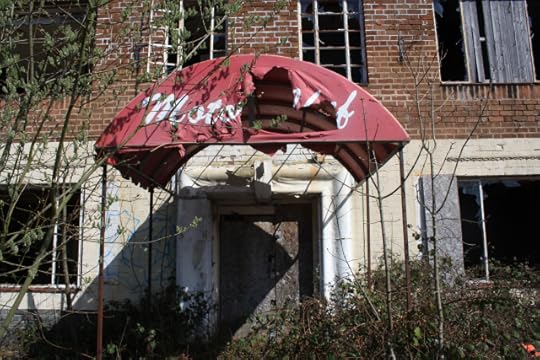
I’m surprised the original awning is still there, and mostly intact.
The bar, with shutters down. The board on the right still has bits of mirrored tiling attached to it, probably where spirits and mixers were displayed.
 I’m guessing this was the main dining room.
I’m guessing this was the main dining room.
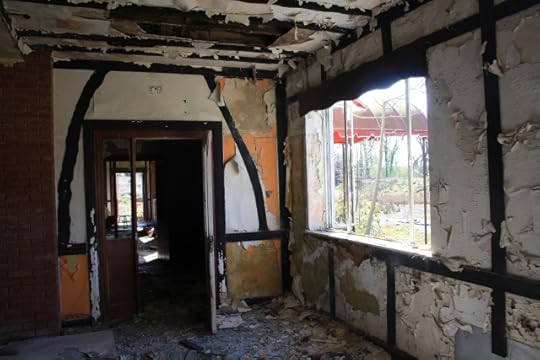




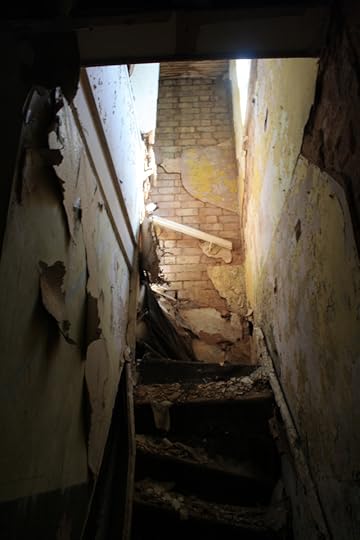

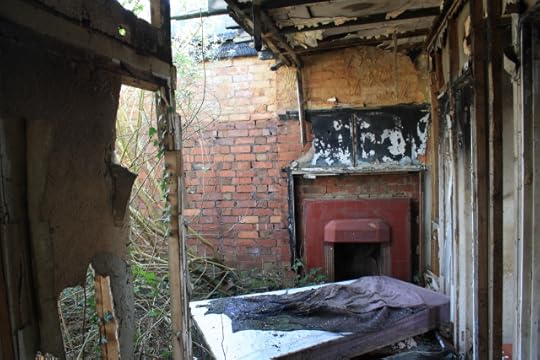
 I like the original 1950s fireplaces too. Had they been cast iron, they would have been scavenged ages ago.
I like the original 1950s fireplaces too. Had they been cast iron, they would have been scavenged ages ago.
There were loads of beds and rotting mattresses on the upper floor, along with small, partitioned off rooms, so it probably served as a motel too, or possibly just had rooms for staff. In this state, it looked like the ruins of some kind of nightmarish brothel from a dystopian sci-fi film.
 A glimpse of the future? I like this last shot, an empty fuel pump next to a derelict motor-diner. It’s as if Peak Oil has already struck…
A glimpse of the future? I like this last shot, an empty fuel pump next to a derelict motor-diner. It’s as if Peak Oil has already struck…
May 11, 2012
Creative Writing Course – Week 20
 Week 20 of the creative writing course centred on readings from our 3rd chapters of our novels-in-progress. This included me reading out a passage from my first draft of chapter three. It’s not until you read out a passage from a work in progress to a room full of critics that you become aware of the glaring inadequacies of your work, but that’s precisely why you have to do it. As well as reading out our work, we discussed with the tutor about how our work was progressing and ways in which we could develop the story further. I found this quite helpful in that it provided me with a few more little ingredients to include or expand upon.
Week 20 of the creative writing course centred on readings from our 3rd chapters of our novels-in-progress. This included me reading out a passage from my first draft of chapter three. It’s not until you read out a passage from a work in progress to a room full of critics that you become aware of the glaring inadequacies of your work, but that’s precisely why you have to do it. As well as reading out our work, we discussed with the tutor about how our work was progressing and ways in which we could develop the story further. I found this quite helpful in that it provided me with a few more little ingredients to include or expand upon.
A lot of the discussion came down to the kind of issues that are often seen in first drafts of writing. The writing can be too wordy sometimes, where the writer gets carried away with a scene and ends up with a lot of material that can be cut. Often the dialogue is unnatural and it’s only with re-reading and re-writing does it get straightened out.
For my part, chapter three is a little short, it could do with another 800ish words I think. I have reached a natural stopping point at the end of the chapter, so I have to decide whether to develop this, or add more depth elsewhere in the chapter. I have four completed chapters of this novel at the moment, and the end of the third and fourth chapters provides a convenient scene break, so it feels strange to add more text between them. I need to look at what I have in the fourth chapter to see if I could amalgamate the two perhaps.
I seem to have a problem with starting/finishing projects. While I should be pushing this forward, I’m sidetracked with the concept of writing a horror novel based in China. I mentioned this in last week’s blog, where I did a writing exercise for it. Try as I might, ideas and scenes for this new monster keep infiltrating my mind. I can’t be the only writer this happens to? Does anyone else try to work on one thing but keeps returning to something else instead? At this rate I’ll have a hard drive full of half finished projects and nothing with a concluded ending…








May 4, 2012
Creative Writing Course – Week 19
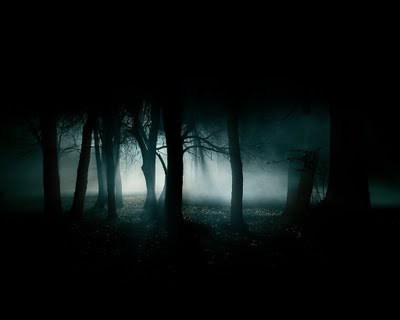 I missed week 18, the start of the third term, so this week was my first week back for the final term of the course. It turns out that it will be the last time the course runs pretty much ever at the University, as they’ve decided to change the way short courses are run. It was fun while it lasted…
I missed week 18, the start of the third term, so this week was my first week back for the final term of the course. It turns out that it will be the last time the course runs pretty much ever at the University, as they’ve decided to change the way short courses are run. It was fun while it lasted…
As the third term will be spent working on our third chapters, a few people read their work out to the rest of the class. We were also asked to look at our weaknesses as we perceive them. This was mostly issues to do with dialogue and over-writing, common problems that plague us all.
One interesting tip that I picked up was to avoid using character names that sound similar or even have the same first letter. Two central characters that are called Bob and Bill could easily be mixed up by a reader, leading to a lack of clarity. If the reader has to go back a few pages to work out which one is which, you’ve created an unneccesary stumbling block for them. If in doubt, make them sound and look totally different on the page. Bob and Bill can become Xavier and Gerald…
The latter half of the class was spenting working on a written exercise. We were given a scenario to write about and were told not to include any inner monolgue, thoughts or feelings from the character(s). This was interesting as one of the issues I’ve been grappling with recently was whether or not to use ‘…he thought to himself…’ type sentences. I’ve used it a few times, but on reading it back I’ve instinctively wanted to cut it, but then wondered if it would still make sense to the reader. I think on the basis of this exercise I’ll cut them out and work on ways to make the situation more explicit.
The exercise was a kind of blind-writing task, 15 minutes to write about the following scenario with the above rules;
The character/characters discover a body somewhere.
I have been toying with yet another work-in-progress which is a horror story set in an abandoned half-built theme park in China, so I decided to use this exercise to create some prose for it. Here’s my attempt. Remember, it’s not meant to include any inner monologue, feelings or thoughts.
~~~
Lu followed the tracks in the mud out of the courtyard. It was dawn, and the weak winter sun made the world look like everything was made of steel. Harsh, flat and gray. The tracks weren’t foot prints, more like the drag-marks made by something heavy being hauled along, possibly against its will. She walked out of the enclosure and onto the footpath beyond. There the marks were harder to discern against the broken and cracked asphalt, but there they were, continuing up the path and trailing off into the undergrowth. A ragged gap had been punched through the shrubs and overgrown weeds.
Something compelled Lu to follow, to step through into the darkness beyond. She picked her steps carefully, as if she might disturb something from the gloom at any moment. The broken and bent vegetation betrayed the movements of whatever had gone before her. Lu’s eyes adjusted to the light under the canopy of thorny bushes. At the base of a gnarled and twisted tree was a bundle of rags in a haphazard pile. Lu stepped closer. Not rags. A body. It lay in a perverse, twisted repose, unnatural for anything living. The entire thing was black with blood, giving it a dull, matt sheen. The body cavity had been ripped open, exposing a tangled jumble of organs that should never see the light of day.
~~~
I think the start of the second paragraph might fail the test - ‘Something compelled Lu to follow…’ but this is the only weakness that I can see in terms of not using thoughts and feelings. It’s actually pretty hard, I had to consciously hold back from expressing the feelings of my main character whilst writing it.
I’ve come to regard ‘he thought/she thought to herself’ as lazy and shall try to banish it from now on. How do other people deal with this? My other problem now is whether to work on the nagging Chinese horror story that has appeared from nowhere, or persist with my crime novel for this course, or the complete the edits for the novel that is actually finished!








April 30, 2012
Top Three Fictional Fiction Writers
This has almost certainly been done before, but I thought I’d write a piece about my favourite fictional fiction writers from TV shows. That’s writers who only exist as characters in TV series, not as depictions of real writers. These aren’t in any particular order because it would be hard to choose and because it’s pretty meaningless anyway…
Ken Cosgrove – Mad Men
 Mad Men is one of my favourite TV shows and Ken Cosgrove, played by Aaron Staton, is probably one my favourite characters. Part of this is due to the fact that most of the characters in Mad Men are dispicable bastards, and Cosgrove is one of the few likeable guys on the show. He’s a copywriter for the ad agency, but moonlights writing short stories for magazines. As Mad Men is set in the 60s, Cosgrove writes sci-fi of the classic alien invasion type which was so prevalent at the time. In a recent episode news of his publishing success comes to light in the office and he’s warned off from pursuing it by a bitter senior partner.
Mad Men is one of my favourite TV shows and Ken Cosgrove, played by Aaron Staton, is probably one my favourite characters. Part of this is due to the fact that most of the characters in Mad Men are dispicable bastards, and Cosgrove is one of the few likeable guys on the show. He’s a copywriter for the ad agency, but moonlights writing short stories for magazines. As Mad Men is set in the 60s, Cosgrove writes sci-fi of the classic alien invasion type which was so prevalent at the time. In a recent episode news of his publishing success comes to light in the office and he’s warned off from pursuing it by a bitter senior partner.Hank Moody – Californication
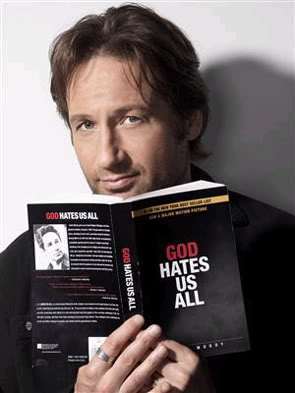 I must admit to only having seen the first season of Californication, on account of the show changing stations/times between seasons, but Moody, played by David Duchovny, definitely deserves a place in my top three fictional writers list. The show is unashamedly trashy, featuring an unholy amount of beautiful women and raucous behaviour, and a lot of the appeal of Moody’s character is that he personifies a one-dimensional male fantasy role; he’s a hard living womaniser with a cool job. The original premise of the show is that he moves to California and suffers from writer’s block. And then has a lot of sex. There’s not much about writing or being a writer, that kind of gets lost in the car-crash of his personal life, but it’s entertaining nonetheless.
I must admit to only having seen the first season of Californication, on account of the show changing stations/times between seasons, but Moody, played by David Duchovny, definitely deserves a place in my top three fictional writers list. The show is unashamedly trashy, featuring an unholy amount of beautiful women and raucous behaviour, and a lot of the appeal of Moody’s character is that he personifies a one-dimensional male fantasy role; he’s a hard living womaniser with a cool job. The original premise of the show is that he moves to California and suffers from writer’s block. And then has a lot of sex. There’s not much about writing or being a writer, that kind of gets lost in the car-crash of his personal life, but it’s entertaining nonetheless.Brian the Dog – Family Guy
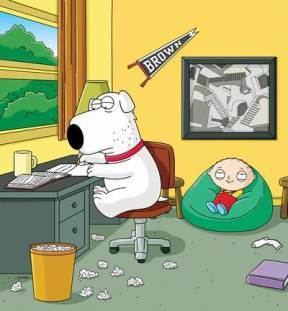 Brian is the family dog from Family Guy, and one of the many running jokes of the series is that he is a struggling writer, often mocked by his nemesis, Stewie the baby. Like Moody in Californication, he’s a drunken womaniser too, but we love him all the same. Part of his appeal to me is his jaded sarcasm. Brian gets to express his in a comedy animation, whereas I have to make do with annoying those around me.There are probably a host of other fictional writers on TV shows, and no doubt many journalists like Ray in Everybody Loves Raymond, but these are my favourites. If only I could combine the writing success enjoyed by Ken Cosgrove with the hedonism of Hank Moody, crossed with the razor-sharp dry wit of Brian the dog Griffin.
Brian is the family dog from Family Guy, and one of the many running jokes of the series is that he is a struggling writer, often mocked by his nemesis, Stewie the baby. Like Moody in Californication, he’s a drunken womaniser too, but we love him all the same. Part of his appeal to me is his jaded sarcasm. Brian gets to express his in a comedy animation, whereas I have to make do with annoying those around me.There are probably a host of other fictional writers on TV shows, and no doubt many journalists like Ray in Everybody Loves Raymond, but these are my favourites. If only I could combine the writing success enjoyed by Ken Cosgrove with the hedonism of Hank Moody, crossed with the razor-sharp dry wit of Brian the dog Griffin.







March 30, 2012
Work in Progress – Chapter 2
 The creative writing course I am attending recently broke up for the end of the second term, leaving me with a few class-less weeks before it restarts in late April. The second term was spent writing and editing our second chapters, which have now been submitted for marking. I posted the first chapter here a few weeks back.
The creative writing course I am attending recently broke up for the end of the second term, leaving me with a few class-less weeks before it restarts in late April. The second term was spent writing and editing our second chapters, which have now been submitted for marking. I posted the first chapter here a few weeks back.
Following that post, I've put the second chapter up here. To recap, the working title is 'Cover' – it's about an undercover policeman who uses an investigation into drug trafficking to feather his own nest and follows his increasingly desparate moral descent, dragging others with him.
It's still a work in progress, and will almost definitely experience a re-write of some kind. I realise I might be being overly optimistic by posting a 2,000 word plus blog post, but hey…
~~~
Chapter Two
Sullen but co-operative, Mitchell went through the booking-in process with the custody sergeant at Paddington Green station and was escorted to a cell where he sat and waited. The white walls and featureless confines gave Mitchell a blank canvas on which to play out the car park incident over and over again in his mind.
He lay back on the thin plastic mattress and shut his eyes in an attempt to block out his surroundings. He needed to be focussed and single-minded if he was to stop the situation slipping beyond his control, but it wasn't long before a more familiar, persistent set of recollections returned to him. A chaotic slideshow played inside his head like scenes cut from a film and discarded on the editing room floor. Piles of spent brass cartridges lying in the dust. The moist, sweet smell of sweating soldiers crammed inside armoured vehicles. Toothless Afghan villagers staring at him and his men and long shadows cast over the desert floor by a setting sun. It wasn't just the horror and the dislocated fragments of fire-fights that stayed with him, it was the everyday transactions of his two tours. Mitchell had come to accept them now. No point trying to fight something in your own head.
Keys rattled in the cell door and he was summoned out. A uniformed officer accompanied by a couple of grim-faced detectives in suits and ties stood waiting in the corridor. Had he been a normal suspect in a double murder case he would have had to endure hours of waiting while the investigating officers compiled their notes and arranged his legal cover, preparations for the start of a lengthy investigation and interview process. But this was no standard case. The detectives didn't introduce themselves and Mitchell didn't recognise them, which was probably a good thing. Un-cuffed, he was led back in silence through the labyrinthine bowels of the station to the secure car park. He was shown to an unmarked police car and told to sit in the back while the two detectives got in the front.
Mitchell knew where they were headed. The Met had commandeered a grim 1960s three storey building which had once been council offices. Most of the large open plan space was used for storage, the rooms filled with packing crates full of non-sensitive paperwork and office equipment. The top floor was the operational headquarters for Operation Whetstone.
The anonymous detectives walked him up the cold stairs, their footsteps echoing down the empty stairwell. Mitchell imagined this was what it would be like to live in a totalitarian state and find yourself at the hands of the security forces; taken from your cell to an undisclosed location for interrogation and an uncertain fate. The building was unheated, adding to the clinical feel of the place. Almost totally devoid of colour and human touches. Most of the staff working on the operation had finished for the weekend, and those who would have been here now had been sent home. Clusters of empty desks filled the office space, chairs patiently awaiting their occupants.
He was ushered into a meeting room and the door closed behind him. At the far end was Detective Superintendent Neal Winters, sitting at the head of a long expanse of desks. The two men maintained their respective positions at either end of the room until Mitchell broke the deadlock by making an exaggerated show of rubbing his wrists – soothing the cuff-marks left from his earlier arrest – as if to show Winters the discomfort he'd endured over the last hour or so.
"Well?" Winters asked.
Neal Winters was a career policeman. Decades of walking the beat, criminal investigations and countless hours of paperwork and strategy meetings had put him at the head of the Metropolitan's Covert Operations Group. From this vantage point he looked down on Mitchell. He could summon him, interrogate him, berate him, promote or fire him. He expects you to do most of the talking and only cuts in to tell you what to do or when you're wrong.
"It was pretty much like I told you on the phone."
"You got jumped by some machinegun wielding foot soldiers and returned fire, killing two men?"
"That's right."
"You didn't recognise them?"
"No. They looked Turkish or Greek. Middle Eastern maybe."
"You're going to have to write a report on this, for my eyes only at this stage."
Mitchell nodded.
"And you're offline until we know more of the details," Winters said, pointing a bony finger at him to emphasise his point.
"For how long?"
"For as long as it takes us to deal with the investigators and work out what type of shit this is likely to cause at street level. You're either looking at being thrown back into standard detective work or a charge for double murder – and right now I have no idea which way it's going to go."
Mitchell swallowed hard. Firing weapons on duty always led to lengthy and painful investigations. He should have seen the possibility coming, but it was still hard to hear. He didn't want to ask how he'd been freed without even an informal interview after killing two men. But he knew it wouldn't have happened without Winters' intervention and a whole stack of begrudging sign-offs from the very top.
"All I was doing was walking back to my car. Why give me a gun if I can't defend myself?"
"I've heard it countless times before over the years," Winters said, in a tone that suggested he didn't want to hear any form of excuse. "A police shooting is bad enough for a standard firearms unit, but there is nothing standard about this. You've got the easier end of the deal."
"What? I was the one almost gunned down in a car park. I'm the one who has to live with the death of those two men…" Mitchell shouted, jabbing himself in the chest.
"Yes, but this whole operation is my vehicle. I run it. I pick the personnel. I make the decisions. I spend millions pounds of tax-payers money on something that might land us in prison or at least discharged from the force with no pension if it goes wrong. I authorised the firearms issue for you. As far as the Home Office is concerned, I pulled the trigger."
Winters was shouting now. Mitchell had only seen him do it a couple of times – and only at other people – and it was a sobering experience. He was on the streets, but Winters was the one dealing with the fallout, convincing people behind closed doors that all the expense and risk would be worth it in the end. But now neither of them were so sure.
"And you're certain there weren't any witnesses. Just you and the shooters?"
"Yes, like I said earlier. They chose the location well – a deserted car park and a CCTV blind spot."
Mitchell could see Whitaker making a run for his car after witnessing the shootings. Right now he almost wished he'd killed Whitaker too. Caught in the crossfire, an innocent man tragically caught up in gang violence. It would have been depressingly plausible, Mitchell thought.
"Good." Winters moved to the window and stared down onto the streets below. The building looked out onto a nondescript part of London. A dual carriageway, industrial units. A rail line and rows of housing. "Do you think this was Cleavis' crew?" he asked, still peering out into the darkened streets.
"I don't think so."
"What makes you think that?"
"For one I can't think of a reason why they'd want me dead. We're in the middle of negotiating a deal with them. Plus, they wouldn't use hired muscle to do it, especially not Turks or Greeks or whatever. They'd have their own guys for that."
"Exactly what I was thinking," said Winters, as if he'd only asked to confirm his own thoughts on the matter.
"So where does it leave us?" Mitchell asked.
"Right now, it leaves you writing a report on the incident, and me with a lot of explaining to do."
Mitchell nodded. He turned to leave, but Winters spun away from the window to face him.
"Where are you going? Write it now. I want an account of the events, second by second. Leave nothing out." He marched over to the door and flung it open. The two detectives came in and stood awaiting orders.
"Don't let Detective Mitchell leave until he's finished. When he's done, call me and I'll collect it." Mitchell sighed and let his head hang in resignation. Winters left him with the two detectives standing by like teachers making sure a detention was served.
***
Baba was a fat man. Fifty-eight years of over-eating, smoking, not exercising, and generally not giving a fuck about his weight had made him seriously obese. His walk had become a lumbering waddle. Just moving from room to room robbed him of breath and made him break into a sweat. His breathing rattled and wheezed, as if forced from a tired and over-taxed set of bellows. But he didn't care. He was rich. He was respected in his community.
Wreathed in cigarette smoke and eating a plate of dolma, Baba sat alone in the back room of the Agiri Social Club in Haringey watching his favourite soap opera on a Kurdish satellite channel. People knew not to disturb him during the show. This was his personal time. Surrounded by stacks of tubular steel chairs and Formica-topped tables, it was his private sanctuary. Baba liked the down-at-heel simplicity of his surroundings. No sumptuous office or plush suite for him.
There was a knock at the door – it was Ozi and Mamir. Baba had been expecting them. He looked over from the TV and they both gave a slow, negative shake of their heads in unison. Baba turned back to his TV show. The two men stood in the doorway, not sure if they should stay or leave. Baba picked up the last remaining dolma and crammed the whole thing into his mouth. Ozi and Mamir watched his cheeks bulge and his grey, bristly moustache twitch as he chewed and then finally swallowed his food. He then wiped his face and hands with a napkin and took one last, long drag on his cigarette before crushing it into the ashtray. He grabbed the empty plate and hurled it, discus-like, at the two men. It smashed into the wall, covering them in shards of china and scraps of food. He stood up, almost knocking the table over as he did so.
"They let him get away?" Baba bellowed in Kurdish.
"No, Baba. That man killed them both," Ozi replied.
"What?"
"We don't know what happened, but they're both dead."
"What happened to the man?" Baba asked, his huge bulk trembling with anger.
"We don't know," Mamir said softly, staring down at the cracked vinyl floor tiles at his feet.
Baba seized the large glass ashtray and launched it at the TV. The screen smashed and the picture vanished with a loud terminal-sounding pop. The sudden absence of the soundtrack was deafening.
"Get hold of Cleavis for me. I want to know what the fuck is going on."
Ozi and Mamir scrambled out of the room. Baba stood alone, surrounded by broken glass and crockery. Something fizzed and crackled in the wreckage of the TV set. He sat down again, gasping for breath, his fingers franticly tearing open a fresh packet of cigarettes. This was a complication Baba could have done without.
~~~
Wow – you made it to the end of the post? I thought a 2k+ word post would be too much for most people, but maybe I was wrong. Of course, you may have just skipped to the end, but I prefer to think you read all the way to here. 









